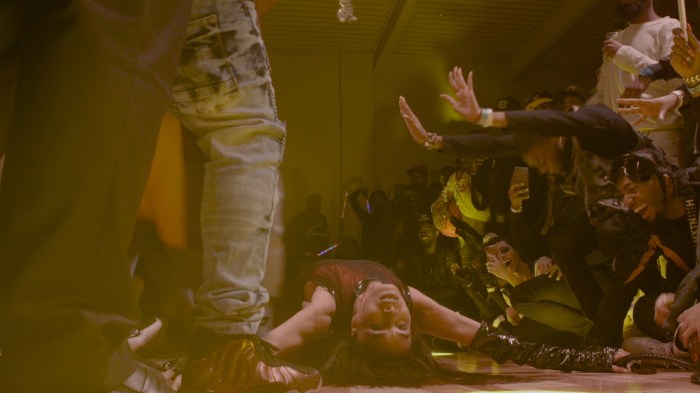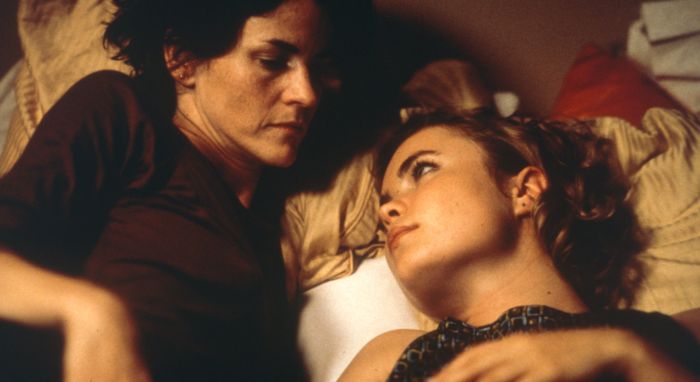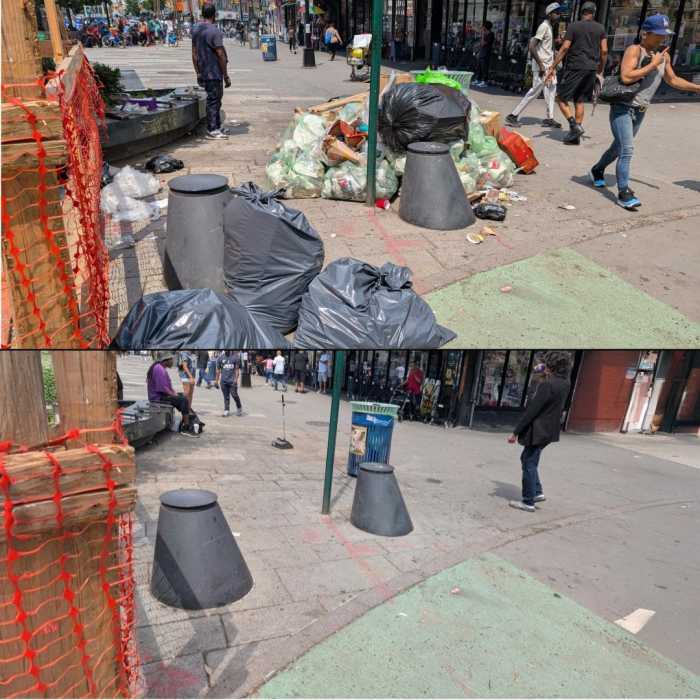Anne Dorval in Katell Quillévéré’s “Heal the Living.” | COHEN MEDIA GROUP
“Heal the Living,” about a handful of lives that are changed as a result of a car accident, could have been maudlin and soapy. However, in the careful hands of director Katell Quillévéré, this is truly a life-affirming drama.
Quillévéré and Gilles Taurand adapted Maylis de Kerangal’s celebrated 2014 novel. The story is told in two connected parts. It opens with 17-year-old Simon (Gabin Verdet) leaving his girlfriend Juliette’s (Galatéa Bellugi) bed to meet his buddies for some early morning surfing. The luminous deep blue of the waves mirrored by the road the boys drive home on, in a visual gimmick, has the road “becoming” the wave just before the car crashes. Two of the teens wore their seatbelts and had minor injuries, but Simon hadn’t. He lies in a comatose state in intensive care with head trauma.
Doctors Pierre Révol (Bouli Lanners) and Thomas Rémige (Tahar Rahim) soon explain to Simon’s parents, Marianne (Emmanuelle Seigner) and Vincent (Kool Shen), that their son is brain dead. Thomas asks them to consider organ donation. It is a tough decision, and Quillévére gives her characters time to let the impact of the choice sink in. A scene in which Marianne and Vincent both hug the comatose Simon is among the most moving in the entire film.
Katell Quillévéré’s tale of a medical miracle rises above the sentimental
Quillévéré also generates emotion by humanizing the members of the medical staff. She reveals their idiosyncrasies: Révol sings along to rap music in his car; Rémige looks at videos of goldfinches on his computer; Jeanne (Monia Chokri) a new ICU nurse, has a sexual fantasy during a brief elevator ride. The effect adds shading to these characters, who help the patients and their families cope with unexpected tragedies like Simon’s accident. That viewers feel compassion for all the characters allows “Heal the Living” to plumb the depths of the humanity on display, not gloss over it. It brings this fragile story of life lost and regained into bold relief.
The second and weaker half of the film chronicles Claire Méjean (Anne Dorval), a woman with a degenerative heart disease. Claire has two college age sons, Maxime (Finnegan Oldfield) and Sam (Théo Cholbi), as well as an ex-lover, Anne (Alice Taglioni), with whom she reconnects one night after Anne’s piano concert. Claire feels fragile about her tenuous existence, and is trying to reconcile her life with her kids and her ex should she suddenly pass away.
The film’s title, of course, suggests how Claire’s story will be connected to Simon’s. Quillévéré generates modest tension as Claire waits for the call that a donor is ready, and she spends considerable screen time showing Claire’s team fly out to get Simon’s heart for her, with overlong scenes focused more on a stressful process than the emotions involved. Similarly, the graphic scenes of Simon’s heart being harvested and implanted in Claire, are potentially off-putting in a film that is otherwise made with such sensitivity and grace.
Another minor drawback is the ambiguity of Claire’s story. Quillévéré leaves an issue between her and her son Sam unresolved, and it’s unclear whether Claire’s sons know about her relationship with Anne. Given a lovely flashback involving Simon’s courtship with Juliette — where he drops her at a funicular and then bikes to the top to kiss her when she arrives — the underdevelopment of Claire’s storyline seems strange.
Still, “Heal the Living” tackles its sensitive and ethically complex subject of organ donation with aplomb. Quillévéré succeeds in showing the preciousness of life, coaxing strong performances from her entire ensemble cast. Seigner is heartbreaking as Marianne; a scene where someone mentions the seatbelts to her triggers a powerfully effective emotional response. Dorval makes Claire a sympathetic woman, and it’s quite touching when she asks an usher to carry her up a grand staircase so she can attend Anne’s concert.
In support, Rahim gives a fine performance as Dr. Rémige, and Oldfield is particularly compelling as Claire’s son Maxime. An episode where Claire plays a cruel joke on Maxime illustrates just how devoted he is to his mother.
“Heal the Living” does not break new dramatic ground, but it is an engrossing film — even if its vivid medical moments are not for the faint of heart.
HEAL THE LIVING | Directed by Katell Quillévéré | Cohen Media Group | In French with English subtitles | Opens Apr. 14 | Quad Cinema, 34 W. 13th St. | quadcinema.com






























